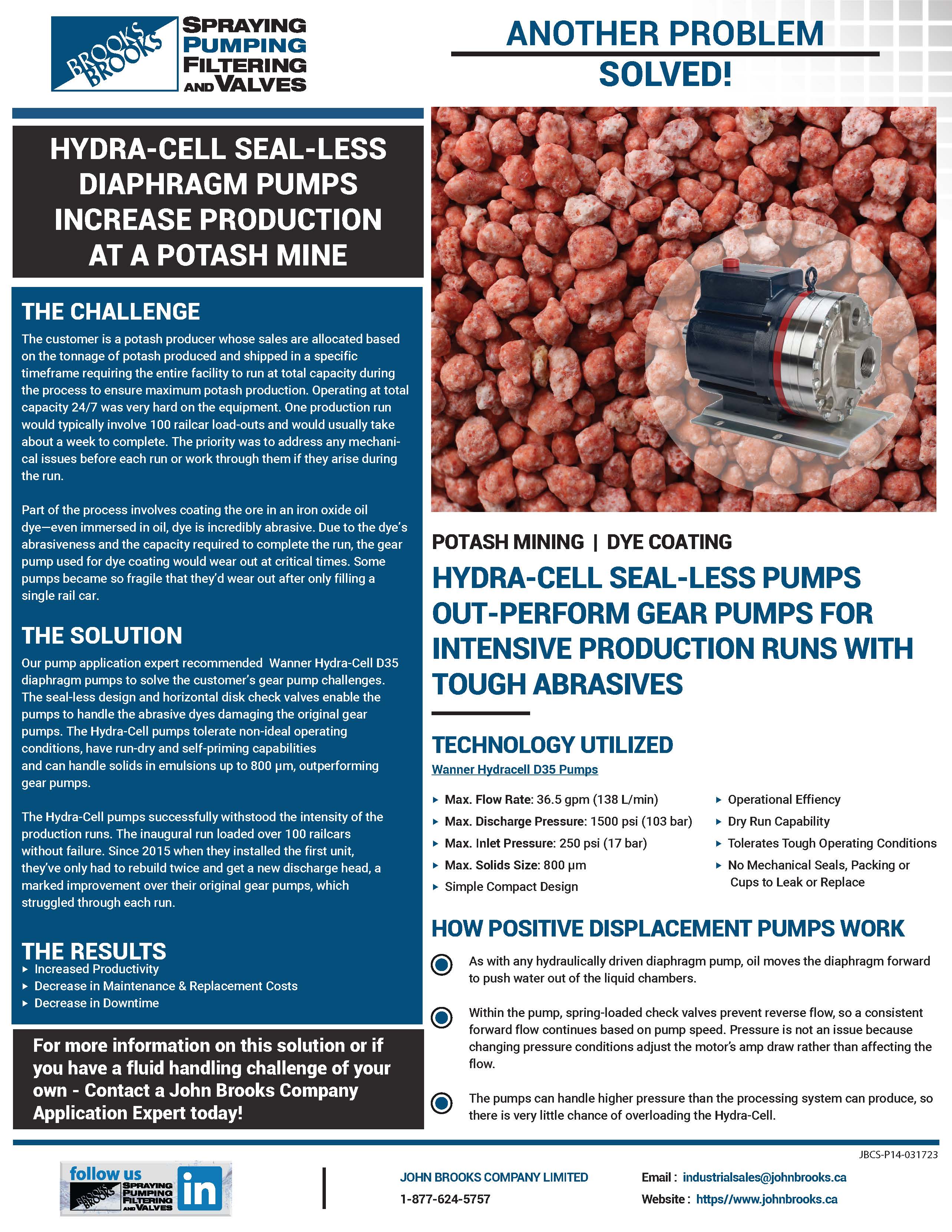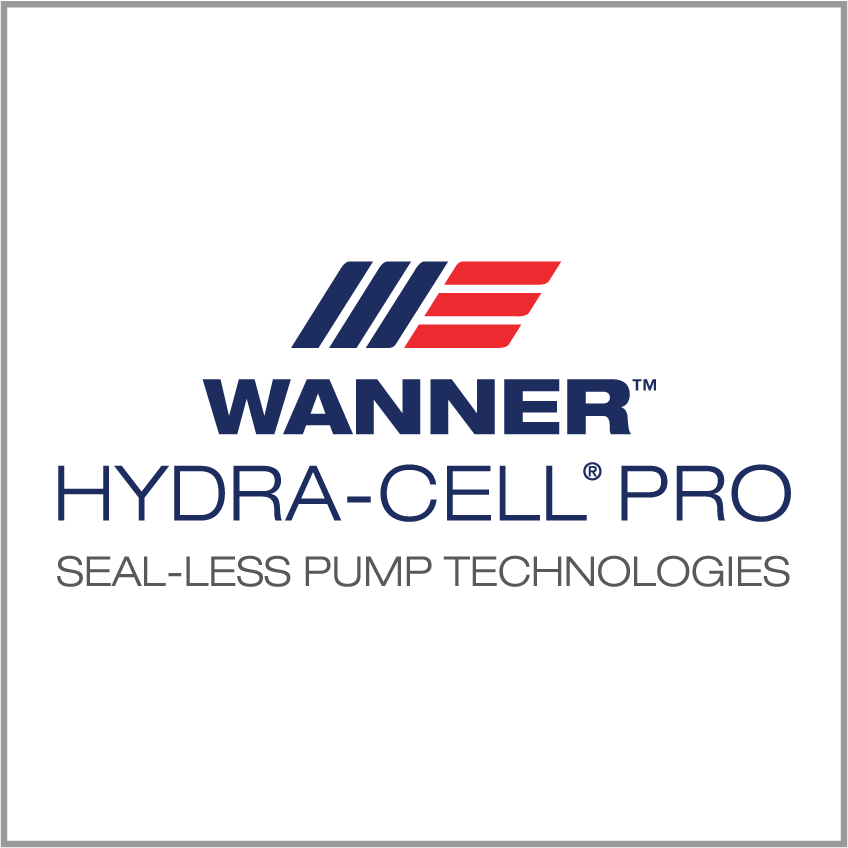Seal-less Diaphragm Pumps Triumph Over Some of the Toughest Abrasives – here’s how our Customer successfully increased their potash production by replacing their gear pumps with Hydra-Cell D35 Seal-less Diaphragm Pumps.
The Challenge: The Customer’s Gear Pumps Couldn’t Handle Their Workload
The Customer is a potash producer whose sales are allocated based on the tonnage of potash produced and shipped in a specific timeframe. This transaction requires the entire facility to run at total capacity during the process to ensure maximum potash production. One production run typically involves 100 railcar load-outs and usually takes about a week to complete. Operating at total capacity 24/7 was very hard on the equipment. The priority was to address any mechanical issues before each run or work through them if they arose during the run.
Part of the process involves coating the ore in an iron oxide oil dye—even immersed in oil, the dye is incredibly abrasive. Due to the dye’s abrasiveness and capacity to complete the run, the gear pump used for dye coating would wear out at critical times. Some pumps became so fragile that they’d wear out after only filling a single rail car.
The Solution: Robust Hydra-Cell Seal-less Pumps Are Designed for Durability
Our pump application expert recommended Wanner Hydra-Cell D35 diaphragm pumps to solve the Customer’s gear pump challenges.
The Advantages:
- The seal-less design and horizontal disk check valves enable the pumps to handle the abrasive dyes damaging the original gear pumps.
- They tolerate non-ideal operating conditions.
- They have run-dry and self-priming capabilities.
- Their solids handling capabilities are better than the gear pumps and can handle solids in emulsions up to 800 μm.
The Result: More Runs, Fewer Problems
The Hydra-Cell D35 pumps successfully withstood the intensity of the production runs. The inaugural run loaded over 100 railcars without failure. Since 2015 when they installed the first unit, they’ve only had to rebuild twice and get a new discharge head—this marked improvement over their original units, which struggled through each run.
The Results:
- No failures affecting the amount of potash produced and dyed
- Consistent flow throughout the process
- The pumps were tougher and could withstand complete runs with less maintenance
- Fewer parts mean less maintenance and cheaper replacement costs
Diaphragm Pump Technology Used
We solved the Customer’s problems using Wanner Hydra-Cell D35 Pumps.
D35 Series Pump Specs
- Flow Rate: 36.5 GPM (138 L/min)
- Discharge Pressure: 1500 psi (103 bar)
- Inlet Pressure: 250 psi (17 bar)
- Solids Size: 800 μm
- 316 SS head, ceramic seats, buna diaphragms
Features & Benefits of Hydra-Cell Pumps
- Can pump the full spectrum of low-to-high viscosity fluids
- Simple, compact design reduces initial investment and lowers maintenance costs
- Operational efficiencies help reduce energy costs.
- Dry run capabilities without damage or additional maintenance
- Tolerates non-ideal operating conditions, e.g. can run even if one diaphragm is compromised
- Can withstand the aggressive mill atmosphere/environment
- Check valves capable of handling iron oxide solids
- Linear flow means the dye is exposed to very little turbulence within the pump—reducing the potential for the product to erode internal ports in the pump head
- Minimizes maintenance and downtime because there are no mechanical seals, packing, or cups to leak or replace
- Relatively easy repair with the diaphragm and valve kits on site
How Seal-less Diaphragm Pumps Work
- Like any hydraulically driven diaphragm pump, oil moves the diaphragm forward to push water out of the liquid chambers.
- Within the pump, spring-loaded check valves prevent reverse flow, so a consistent forward flow continues based on pump speed. Pressure is not an issue because changing pressure conditions adjust the motor’s amp draw rather than affecting the flow.
- The pumps can handle higher pressure than the processing system can produce, so there is very little chance of overloading the Hydra-Cell D35.

